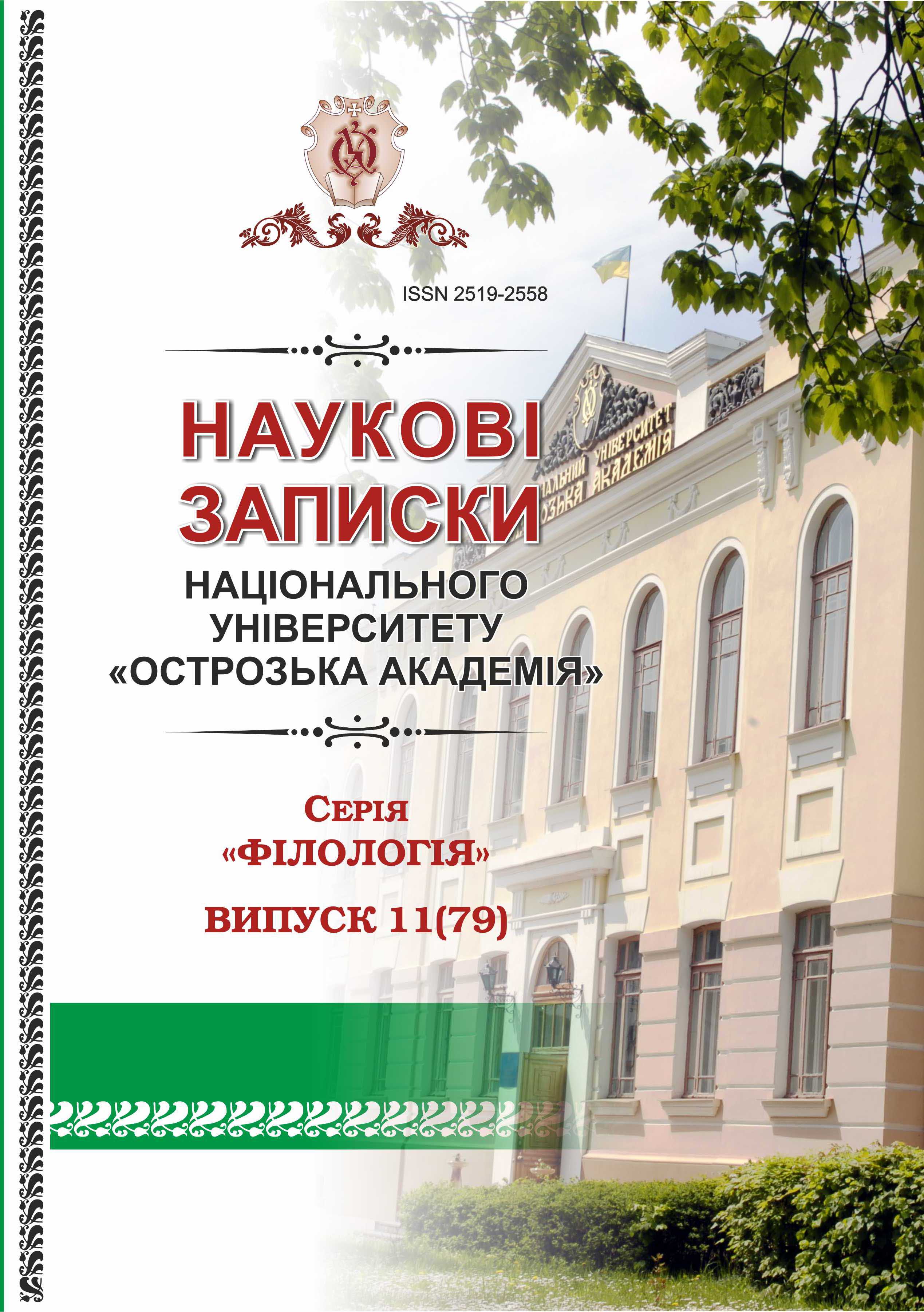STRUCTURALLY SEMANTIC FEATURES OF PREFIXED VERBS IN GERMAN ECONOMIC TERMINOLOGY
Keywords:
derived stem, derivational meaning, derivational pattern, derivational stem, micropattern, stem, term, word-formation, word-formation potentialAbstract
The article is devoted to the studies of characteristics of word-formation structure and semantics of German economic verb-terms with prefixes be-, ge-, er-, ver-, zer-, ent-, emp-, miss-. The paper studies the stems of German prefixal verbs used as economic terms, examined by means of the determining their structural, semantic and functional organization. The examination of prefixal verbs’ stems proceeds from basic root words of derivational chains towards their cognate derivatives. Prefixal verbs are formed according to general language norms on the basis of prefixal derivational patterns of modern German. The results obtained show the decrease of borrowed verb-forming prefixes in German economic terminology. Prefixal verb stems form noun stems by means of suffixation and conversion which are very productive in German. Much attention is given to non-affixal derivative nouns formed by means of the processes of substantivization and conversion stems of infinitives, conversion stems of preterital prefixal verbs. The paper reveals the text-formative potential of prefixed verbs on the basis of German economic terms in economic texts. The derivational patterns of prefixed verbs on the basis of German economic terms in the economic texts are analysed. The article deals with the problems of the influence of context on word-formation structure of German economic verb-terms with prefixes be-, ge-, er-, ver-, zer-, ent-, emp-, miss-. The research has been done on the basis of the translation of German economic texts.

